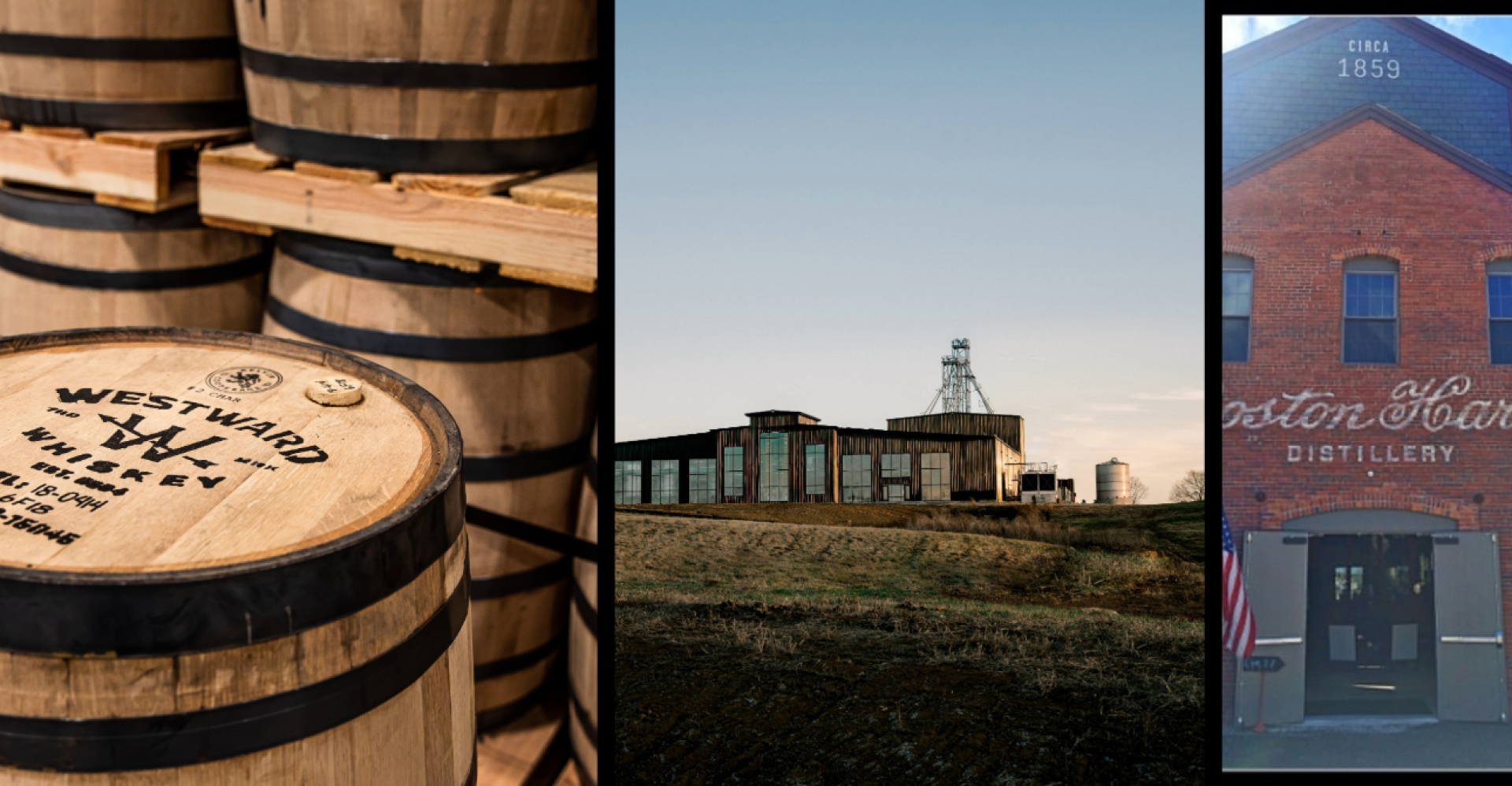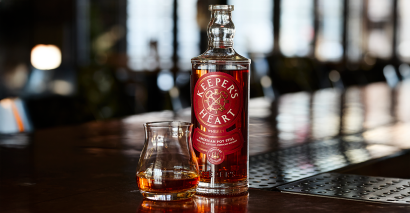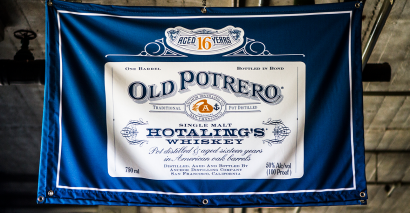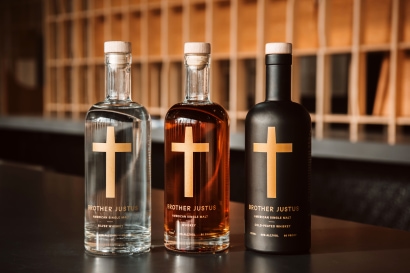
Westward Whiskey, Gerrard County Distilling, and Boston Harbor Distillery recently announced bankruptcy or closure. Westward photo by Carly Diaz
Last month, we took a look at the tumult taking hold of the whisky industry. In the weeks since, more uncertainty has roiled the economy and the whisky world at large, along with more jarring news of trouble on the craft whiskey front—including word that American single malt Westward Whiskey has filed for Chapter 11 bankruptcy. While that sounds grim—bankruptcy isn’t exactly cause for celebration—Westward founder and CEO Thomas Mooney insists there’s a bright light at the end of this tunnel. “The most predominant first sentence I’m hearing from every one of my friends is ‘I’m sorry,’ but in reality, this is an opportunity, it’s something the U.S. law has given us that allows us to reinvent ourselves as the company we need to be in order to compete and win. It’s not the same world [for whisky makers] as two years ago, or even five years ago.”
Portland, Oregon-based Westward was founded as House Spirits in 2004, a time when no more than 30 other craft distilleries were operating in the U.S., with a tiny handful of those making American single malt whiskey (which only just received official designation in January of this year). The Portland, Oregon-based distillery has come a long way since then, championing American single malt and even becoming the first of its genre to land in the top 10 of our Top 20 list. That was done in 2022, with its Cask Strength release. Mooney ran the distillery with a slew of independent investors up until 2018, when it took on investment from Diageo’s Distill Ventures unit. While that enabled Westward to expand its capacity, taking its inventory from hundreds of barrels to thousands, it also now poses a challenge for the craft distiller, as demand for bottled spirits overall declines amid the post-boom downturn.
The future of Distill Ventures’ involvement in Westward remains uncertain. In March, Diageo announced that it would be ceasing all new investment through the incubator program, and while Mooney says that it remains a minority shareholder, both parties are considering their options. “We’re open to a number of scenarios, everything from them being open to an exit, to them staying along for the ride but not having control over the company in the way they did before,” he says. “We’ve had a great run with Diageo, they’ve been a good partner, but we were building something different than what we’re going to be building moving forward.”
To that end, Mooney says that Westward will double down on its direct-to-consumer business (the distillery’s club is its biggest source of growth in that sector), and certain markets, including export markets, where it has avid fans. Ultimately, the show will go on, and Mooney says that even with these headwinds, he expects the distillery to eke out growth in 2025. “This filing is an opportunity to reinvent ourselves as a company,” he emphasizes. “It’s not the end of the road, or a bummer, it’s a chance to do things differently. Chapter 11 is designed for small businesses like us, to keep us in business, so it’s been a revelation, and a positive development.”
Other Distilleries Wading in the Same Waters
Westward isn’t the only craft distiller to turn to Chapter 11 in recent months. On March 31st, Dorchester, Massachusetts-based Boston Harbor Distillery filed for bankruptcy, with plans to similarly reorganize in the months ahead. The distillery has made whiskey since 2015 under the Putnam New England and Demon Seed labels, in addition to other spirits. Montana Distillery filed for Chapter 11 bankruptcy in April of last year (and theirs is a less happy ending, with the doors closing permanently on March 15), while Stoli Group USA, producer of the namesake vodka and Kentucky Owl, kicked off its own Chapter 11 process last November. And in even stranger news, Garrard County Distilling Co. made headlines last week when, just a year after opening, it shut down, with a $2.2 million lawsuit at its doorstep.




